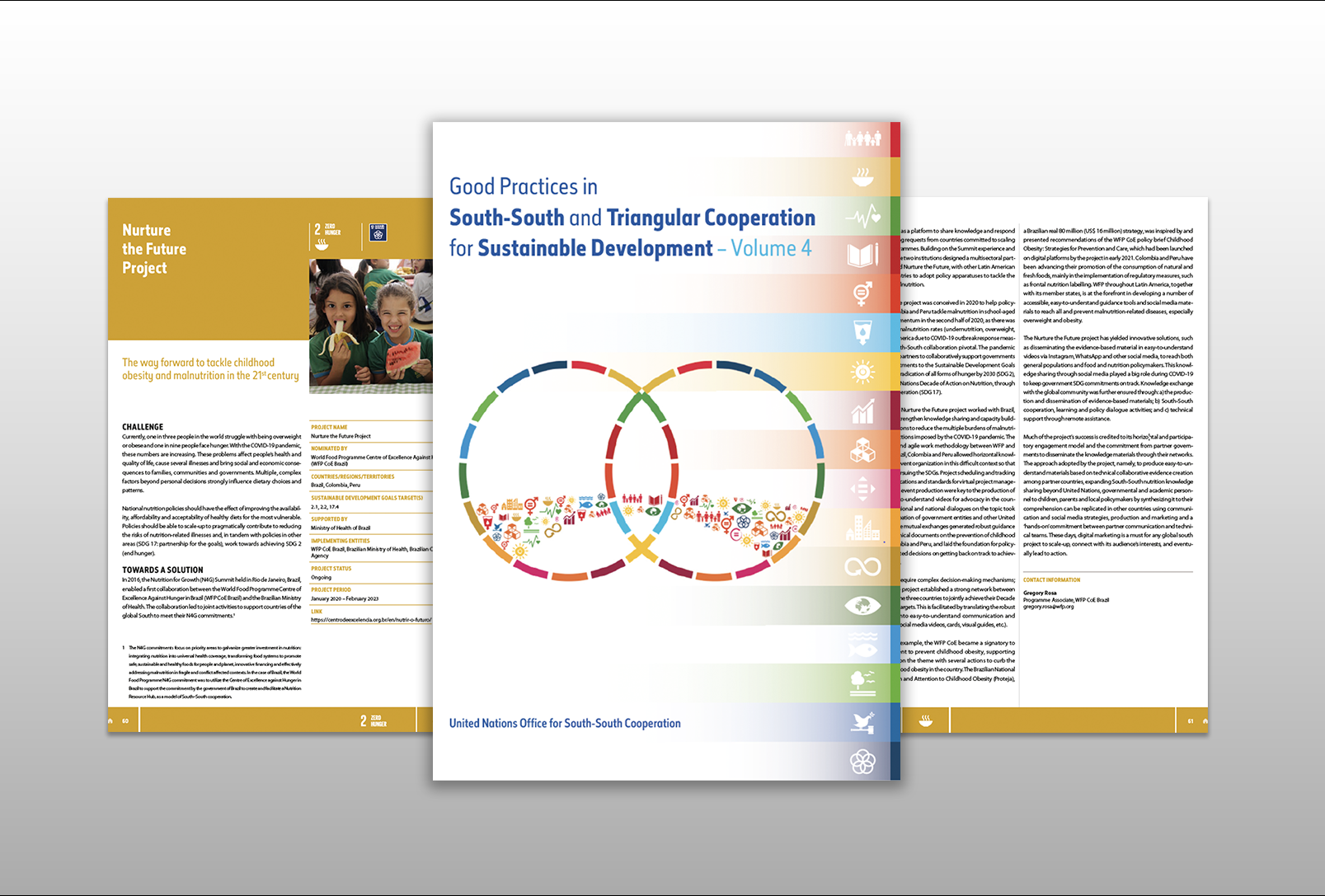
South-South and triangular cooperation can be fundamental for recovering losses and furthering the global commitment of leaving no one behind in a world affected by the Covid-19 pandemic, climate crises and war in Ukraine. At the core of South-South and triangular cooperation is the understanding that exchanging knowledge, skills, experiences and lessons learned between and among countries of the global South serves as a powerful catalyst for development.
It is with that in mind that the United Nations Office for South-South Cooperation (UNOSSC) has launched volume 4 of its Good Practices in South-South and Triangular Cooperation for Sustainable Development publication series on 12 September, during the Global South-South Development (GSSD) Expo 2022. The document shows concrete examples on how development actors are utilizing South-South and triangular cooperation to accelerate progress towards the attainment of all 17 Sustainable Development Goals. One of these examples is the Nurture the Future project, a collaboration between the WFP Centre of Excellence against Hunger in Brazil, the Brazilian Ministry of Health and the Brazilian Cooperation Agency, alongside Colombia and Peru.
The WFP Centre of Excellence serves as a platform to share knowledge and respond to South-South learning requests from countries committed to scaling up their nutrition programmes. The Nurture the Future project was conceived in 2020 to help policymakers in Brazil, Colombia and Peru tackle the double burden of malnutrition in school-aged children. It gained momentum in the second half of 2020, as there was a striking increase in malnutrition rates (undernutrition, overweight, obesity, etc.) in Latin America due to COVID-19 outbreak response measures, making this South-South collaboration pivotal. Read more about how the project has been contributing to the 2030 Agenda on pages 60-61 of the publication.




